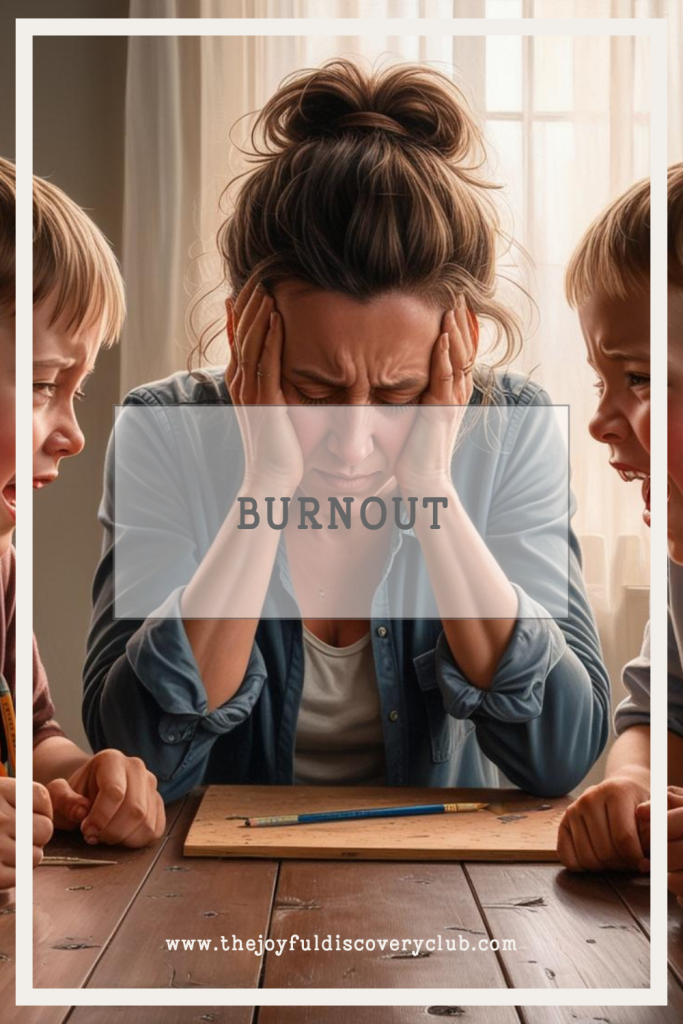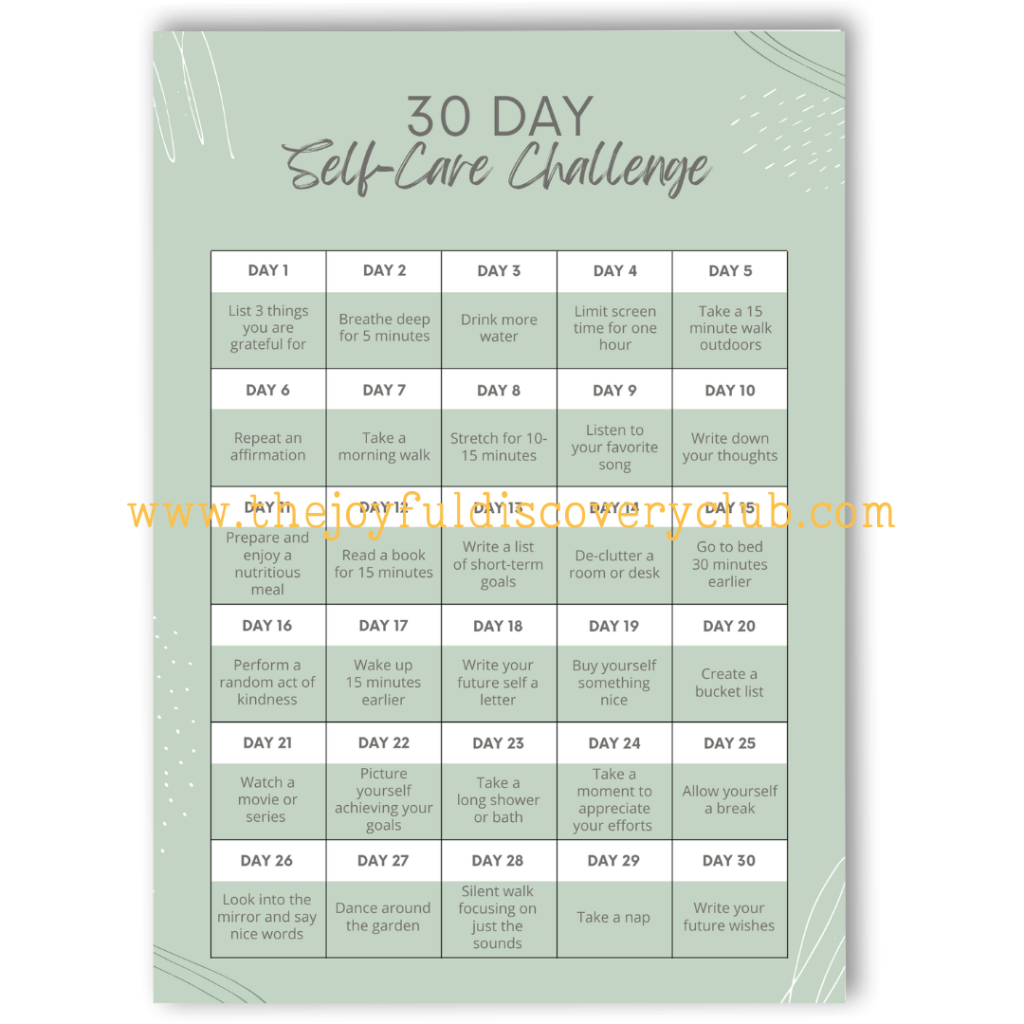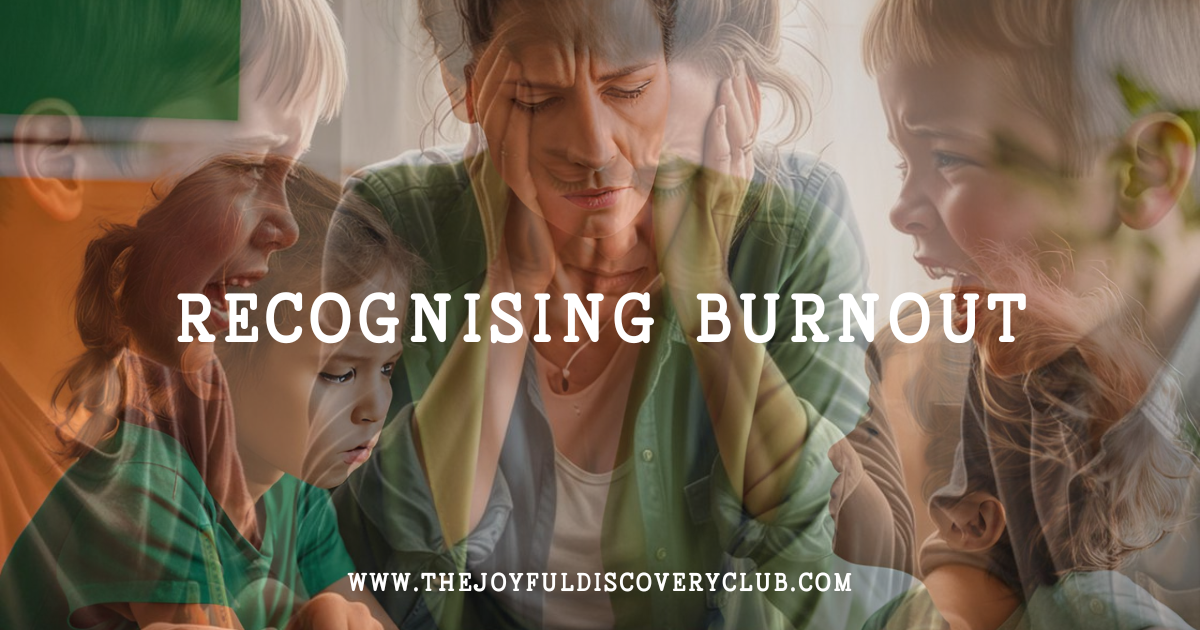Practical Steps to Combat Home Education Burnout
🔥Burnout🔥
Even the word feels heavy, doesn’t it?
As a home educator, you might have noticed this unwelcomed guest creeping in slowly and introducing itself as exhaustion – physical, emotional, and mental exhaustion – that doesn’t go away after a good night’s sleep (if you’re lucky enough to get one, that is!).

You may feel like you are failing, but I promise you’re not failing, and you’re not alone.
But you do deserve some understanding and practical steps to reclaim your energy and joy.
Let’s talk about it—honestly, openly—because finding your balance again starts with recognising what’s really going on.
Recognising the Signs of Burnout
Burnout doesn’t just hit you out of nowhere. It sneaks up slowly, barely noticeable, until suddenly, you’re living every day in a fog. You might brush it off as “just tired” or feel guilty when you need some time alone for a break.
But it’s more than that.
Does this sound all too familiar so far?
You snap at your kids over minor things and then beat yourself up about it. You’re so worn down that you can’t bring yourself to care about lesson plans or extracurricular activities. Many of us have been there.
YOU. ARE. EXHAUSTED!
The idea of tackling another day leaves you drained before you even step out of bed. You’re tired, but sleep doesn’t help. Maybe you’re dealing with headaches, struggling to focus, or even noticing changes in your appetite.
Burnout has a way of hijacking your body as much as your mind.
Impact on Home Education and Family Life
When burnout takes hold, it affects everyone—not just you. Activities you used to enjoy with your kids start to feel like chores. Instead of creating memories, you’re putting out fires, just trying to “get through the day.”
The quality of learning the kids experience can dip, leaving you feeling even more guilty and overwhelmed (a vicious cycle, isn’t it?). Family dynamics can suffer too; that sense of connection and patience you relied on might feel like it’s slipping away into this abyss!
Understanding the Root Causes of Burnout
Burnout isn’t random—it’s brought on by a combination of stressors that often go unnoticed until they pile up.
Understanding what’s causing it is the key to overcoming it.
1. Unrealistic Expectations
Sometimes, we set the bar so high that it’s impossible to clear. Perfect lessons, a tidy home, and three home-cooked meals are a recipe for stress. Things don’t have to be perfect, but the pressure you put yourself under to “get everything right” can leave you feeling like you’re falling short.
And when you’re aiming for perfection every day, even small things can feel catastrophic.
2. Neglecting Personal Needs
Be honest: When was the last time you did something just for you? Hello – yes, I am talking to you! Home educators are notorious for putting themselves at the bottom of the list (have you even put yourself on the list?).
You might feel guilty taking breaks or doing something that doesn’t directly benefit your family. But constantly neglecting yourself?
That’s a huge no-no!
3. Lack of Support
Home-educating our kids can be isolating. Days spent focused on our children might mean fewer opportunities for you to connect with other adults—especially those who “get it.”
I mean, it sometimes feels like the world is up against us and our decision to do what we feel is right for our kids, and having that support from a friendly face is so needed!
The weight of doing it all alone, with no one to lean on, can make burnout hit even harder.
Strategies to Overcome Burnout
Now, here comes the part you need to hear: There IS a way forward.

Burnout isn’t forever, and small steps can make a massive difference.
Here’s how you can start turning things around.
1. Prioritising Self-Care
Let’s flip the script: Taking care of yourself is taking care of your family. Even small actions matter. Block out time for a walk, a quiet cup of tea, or an activity you genuinely enjoy (yes, even if there’s laundry waiting). Think of it as recharging your battery so you can keep going.

2. Setting Realistic Goals
Focus on what’s truly important and let the rest wait. Break tasks into smaller, more manageable steps, and celebrate progress—even if it’s slow. Remember: your kids are on a learning journey – it isn’t a sprint.
It’s ok to pace yourself!
3. Delegating Tasks
You don’t have to do everything yourself. (Repeat that!) Use resources that can lighten the load—online tools, community classes, or even letting your partner or older kids pitch in.
Delegating doesn’t mean you’re failing; it means you’re human. Share the responsibility, and you’ll feel the weight lift. And there is nothing wrong with a ‘chippy dinner’ if it makes your life easy today!
4. Building a Support Network
You’re not the only home educator out there, even if it feels that way sometimes. Look for local groups or online forums where you can share experiences and swap ideas. Come visit me over at Ko-Fi, The Joyful Discovery Club. Feel free to connect, I can help point you in the right direction.
Sometimes, just knowing someone else “gets it” can ease the loneliness.
Preventing Future Burnout
Once you’ve begun to overcome burnout, it’s about maintaining the balance for the long haul. These strategies can help make sure you don’t find yourself back in the same place a few months down the line.
1. Creating a Flexible Learning Routine
Rigid routines can feel suffocating. A flexible one is more like a lifeline. Build your days around what works best for your family, allowing room for surprises, changes, or even the occasional day off.
And no, we don’t need to do 9-3PM, 5 days a week!
Scream that from the rooftops, please – this is not school at home!
2. Celebrating Small Wins
Big achievements are great, but don’t overlook the small, little, teenyweeny wins. Did your child learn something new today? Did you teach one lesson despite feeling tired? Celebrate those moments—they’re signs of progress for both of you. And focusing on what’s going right can be a powerful morale booster.
3. Regularly Checking In With Yourself
How are you feeling—really? Check-in with yourself weekly, even daily, to understand your stress levels. If you notice signs of burnout creeping back, take action early. Small resets, such as asking for help, adjusting your schedule, or carving out downtime, can keep burnout at bay.
Final Thought
Burnout doesn’t mean you’re a bad mum, a bad educator, or bad at balancing it all. It’s a sign you’ve been pushing too hard without the support and care that you deserve.
Remember, with intentional steps and a bit of patience, you can re-discover your energy, your joy, and most importantly, yourself.

Your best days as a home educator are still ahead.
birds books to read burnout collecting nature Colouring gentle parenting hands-on learning indoor activities for kids maths mindful learning neurodiversity outdoor activities for kids overwhelm permission slip places to visit puddles rain school issue shows to see spd unschooling





